Geralt of Rivia: The Hidden Truths of The White Wolf’s Journey
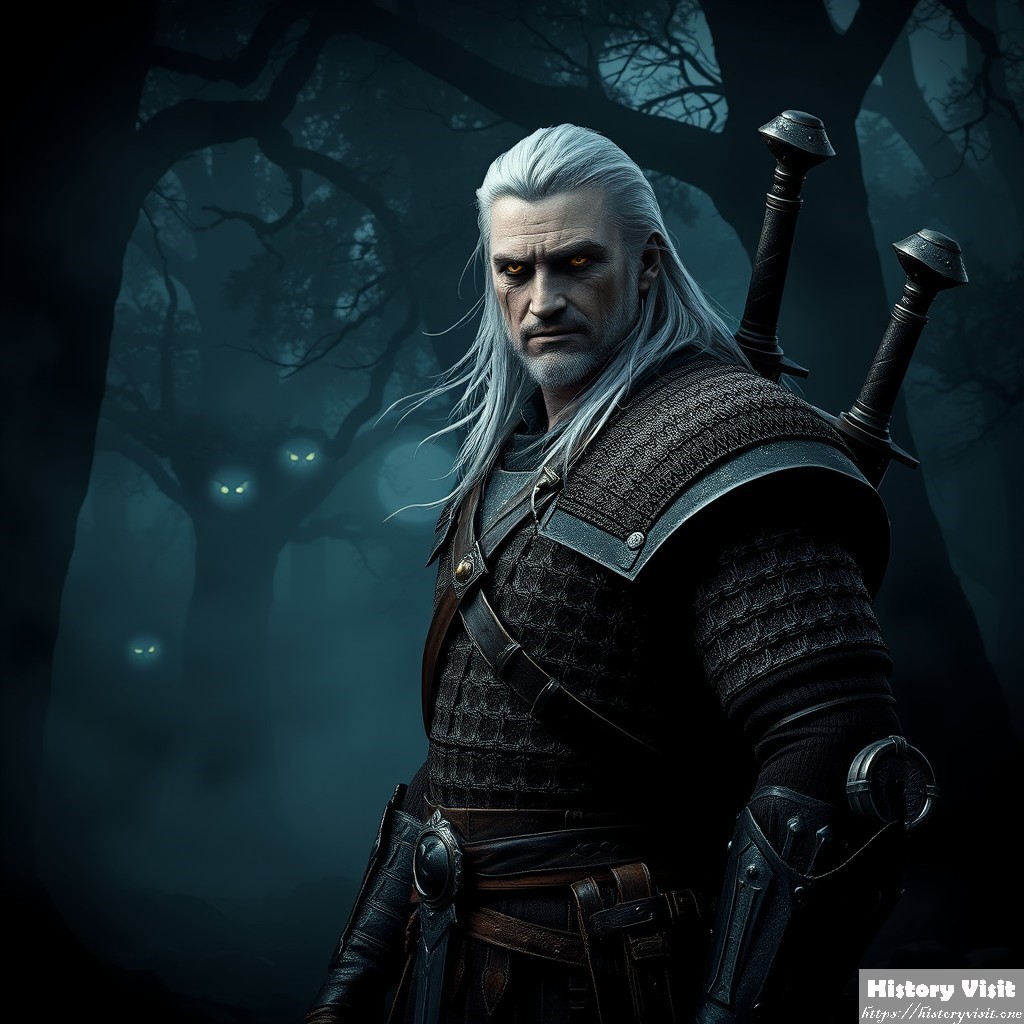
The Legendary Witcher
The nickname, known to many in the lands of the Continent, is that of Geralt of Rivia, one of the few remaining members of this elite monster-hunting order born human but transformed by the brutal Witcher trials. His is not a story of monster-slaying for coin but one of taking on a morally complex world, just as perilous as it may be.
As a Witcher, Geralt of Rivia has several very remarkable abilities. His mutations in genes made him superhuman regarding reflexes, strength, and all senses, setting him apart from common men. All those traits combined with an inquisitive mind and great experience made him one of the most feared and respected monster hunters alive. With unmistakable white hair on his head and piercing yellow eyes, Geralt of Rivia is unstoppable.
Beneath that stoic mask, however, lies a man in a never-ending struggle with the gray line dividing good and evil. The world allows no easy choices between good and evil, and Geralt of Rivia is always treading a thin line between staying aloof and interfering in the affairs around him. The fact that his personal relationships-especially with Ciri, the young princess whom he regards as a daughter, and Yennefer, the powerful sorceress whom he loves-make his path all the more tortuous. Through the course of this story, we shall explore the various facets of Geralt of Rivia’s journey.
The Origins of Geralt of Rivia: Trials and Tribulations
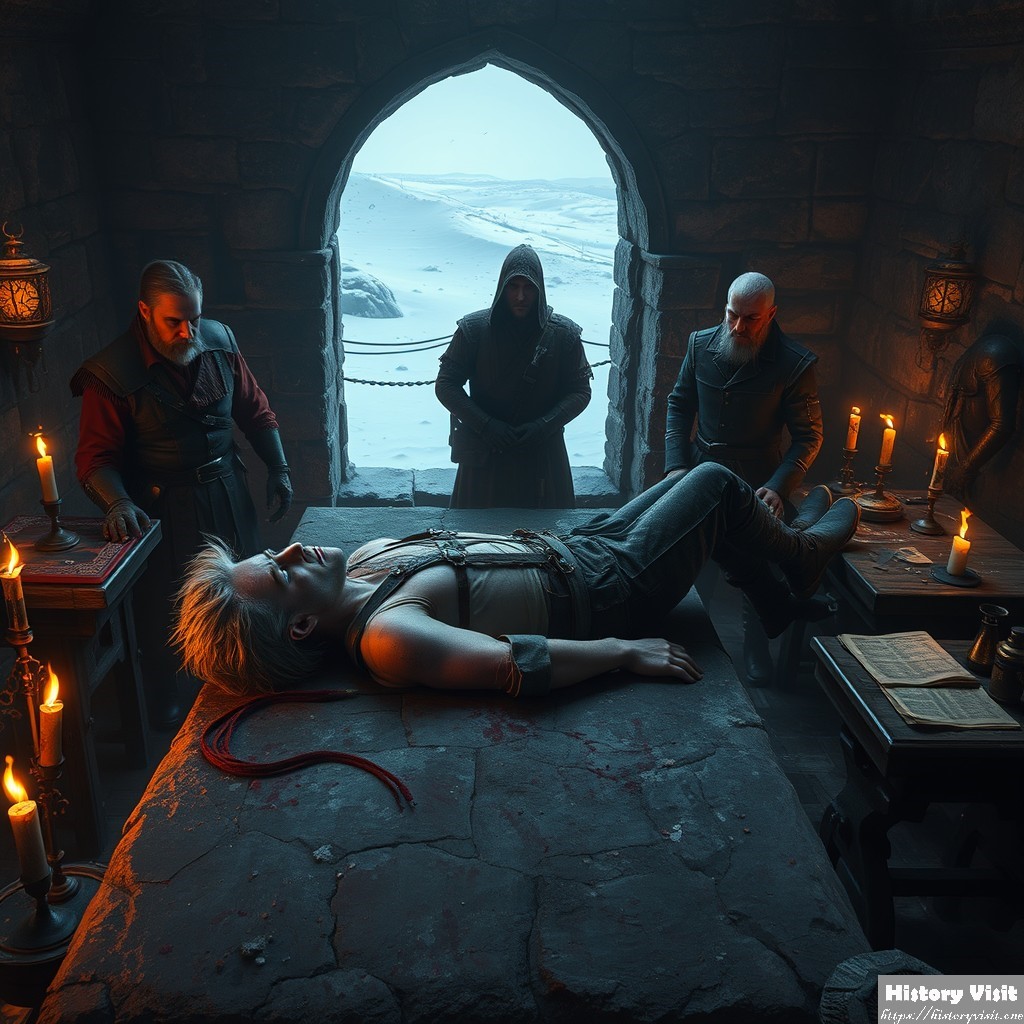
Before Geralt of Rivia became the famous Witcher, he had been just a boy from Rivia. Being an orphan since his early childhood, Geralt was taken to the stronghold of the Witchers-Kaer Morhen. It was there that he went through the harsh trials, which were designed to change his body and mind. Only a small percent of boys survive these trials, but Geralt not only survived-he thrived. These mutations gave him acute reflexes, strength, and endurance but at a cost: it siphoned away most of his emotions and left him with the cold, detached demeanor that would define much of his personality.
The road from human boy to Witcher was not an easy one, both emotionally and physically. Geralt of Rivia had to bear the pain of his mutations-the alienation because of that very transformation. Witchers were seen as unsavory characters by most people around them, arousing suspicion and sometimes even leading to their murder at unthinking hands. Many regarded them as unnatural freaks, furthering Geralt of Rivia’s alienation from the world in which he lived.
Meanwhile, he lived apart, yet despite the isolation, Geralt of Rivia was sworn to the code of the Witchers: a thing neutral, taking on contracts, and little else, save weighing the consequences of human undertakings. Throughout his story, though, Geralt seems to very often blur those lines of neutrality. He is trying hard not to be entangled by politics or human conflicts, but his sense of justice does bring him into situations he would rather avoid.
It was not only in the physical sense that Geralt of Rivia went through trials. His sharp wit, keen observation skills, and his ability to read people soon started playing an equally important part in his survival. These qualities allowed him to get through the hazardous and misleading world of the Continent, where a desire for betrayal, greed, and striving for power is as dangerous as the monsters he hunts.
The Weapons of Geralt: The Steel and Silver Swords
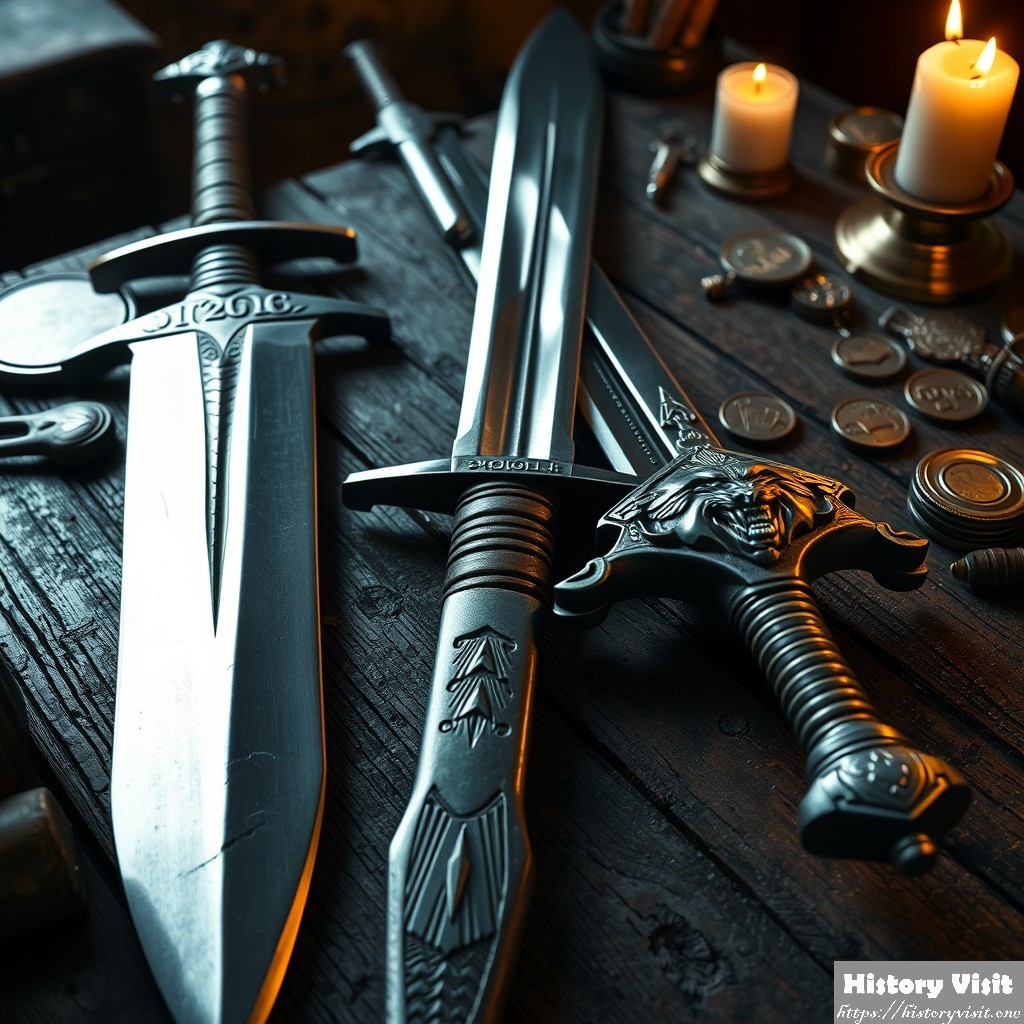
Perhaps one of the most iconic features of Geralt of Rivia’s persona is his two-sword fighting style. As a Witcher, he has twin swords: one steel and one silver. Each of these has a different purpose and meaning with regard to his line of work. The steel sword is meant for fighting humans, while the silver sword is reserved for the monsters across the Continent.
This steel sword is more than a weapon to fight with; it speaks of Geralt’s interaction with humankind. Despite trying to remain neutral, Geralt of Rivia often finds himself in the midst of human conflicts. Thus, his steel sword is used time after time in defense of his life and others from bandits, soldiers, and other human threats. These encounters are just exactly not only physical but moral, as Geralt has to weigh every taken life.
In turn, the silver sword makes the Witcher a real Witcher. The silver sword is made to kill the magical creatures that have populated the Continent and that Geralt uses in order to perform his job as a Witcher. Whether it be a griffin, a wraith, or a werewolf, Geralt of Rivia gets the job done with his silver sword. Many such encounters require not brute strength but also knowledge regarding each creature’s weak point.
But Geralt of Rivia does not enjoy killing man or beast; his relationship to these blades of his is not that straightforward. Where many others may perceive him as nothing more than a ruthless killer, in his opinion he represents a balance in a world full of dark forces. The swords are just tools for survival, not part of some kind of pleasure-filled activity. Consequently, Geralt of Rivia’s general relationship with the world around him is well reflected in his relationship with his weapons.
Magic and Alchemy: Geralt’s Other Tools
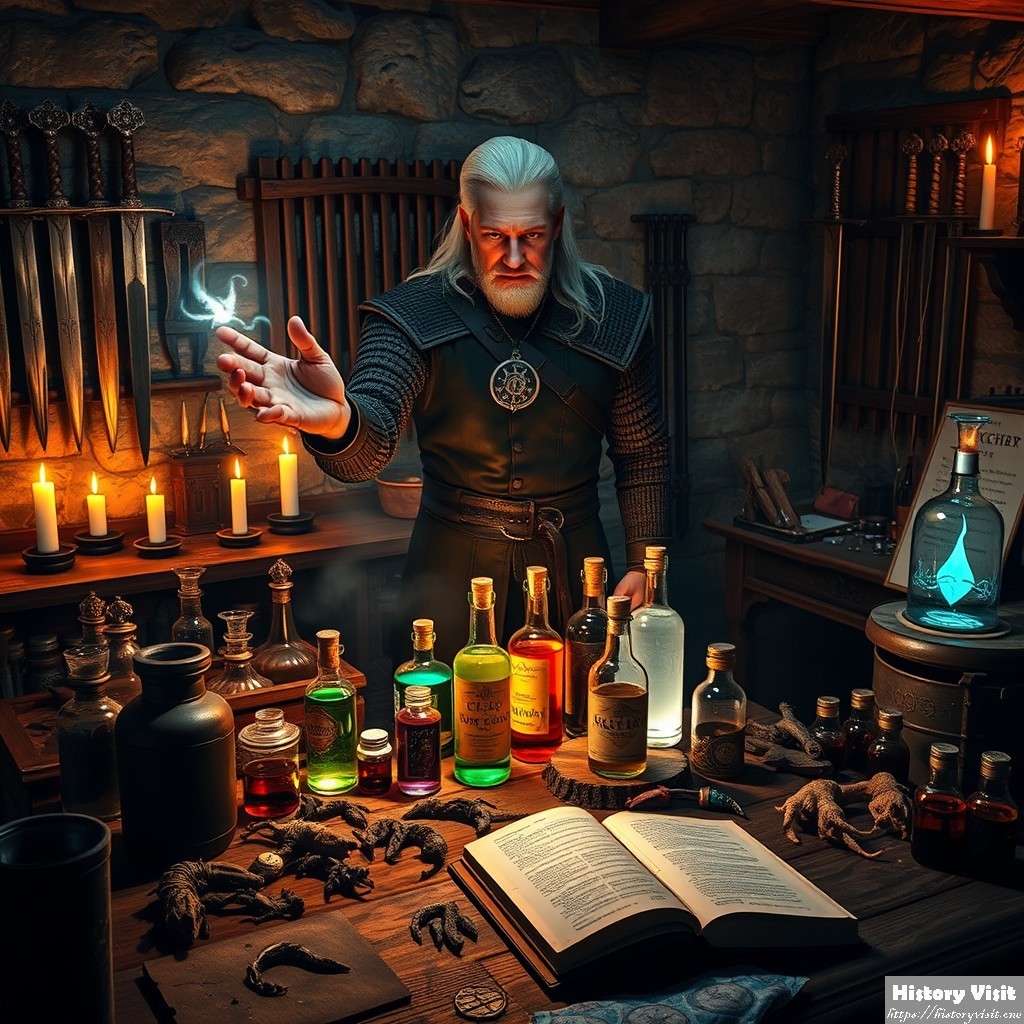
While he is most known for his capabilities with a sword, Geralt of Rivia combines his survival skills with magical ones. Unlike most humans, witchers are granted the capability to cast simple spells, which are known as Signs. Though basic, these Signs give Geralt an advantage in combat. Whether it be burning enemies with Igni, protecting one’s self with Quen, or even Beguiling with Axii, Geralt of Rivia uses magic to bring out his physical capabilities.
These magical abilities make Geralt of Rivia different from any ordinary warrior and allow him to stand against such threats that nobody else could manage. However, he is not able to use this magic without limits. The Witcher’s magic is far weaker than that of the true sorcerers, and therefore Geralt has to use his Signs judiciously. This only overcomplicates his battle, as Geralt of Rivia needs to change his tactics all the time, considering the situation that has appeared before him.
Apart from magic, alchemy is one of the most important features of his survival. With the brewing of potions, oils, and bombs, Geralt of Rivia increases his chances of winning a battle. These potions, however, are toxic for ordinary humans to metabolize, which serves to further outline how great Geralt’s mutation has been. Through this alchemy, he can regenerate health, see well in the dark, or gain increased resistance to damage. However, every consumed potion raises greater risks to his health.
Despite these merits, Geralt of Rivia is very modest about his capabilities. He does not refer to himself as invincible, and the gifts of magic and alchemy he uses in quite reserved ways. He realizes every battle might be his last, and not all that strength can protect him in such a threatening world. And this is that very trait that makes Geralt of Rivia so different from numerous legends.
The Companions of Geralt of Rivia: Ciri and Yennefer
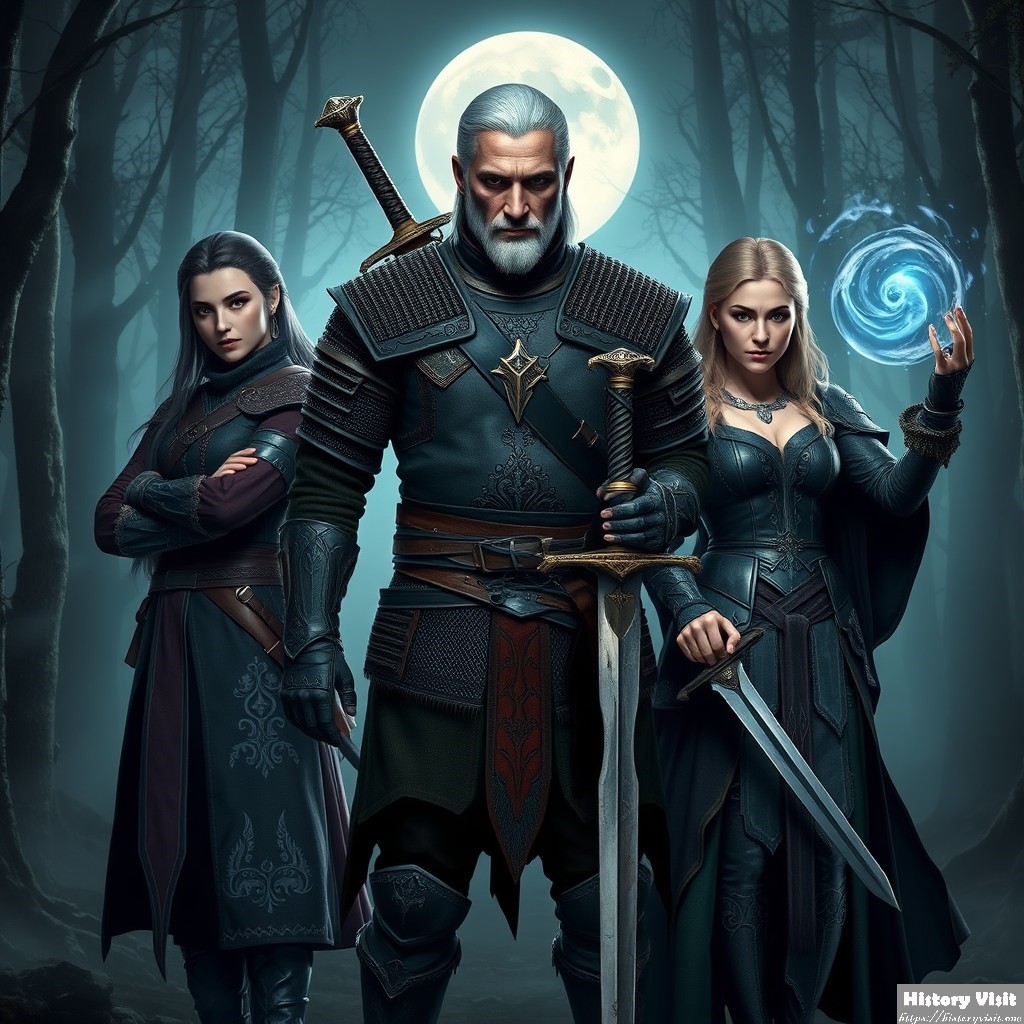
While the character of Geralt of Rivia often reveals a possible lone wolf, he sometimes shares deep bonding with certain key figures. Most of the time, those are Ciri-an adoptive daughter-and Yennefer, the sorceress who captured his heart. These relationships define much of Geralt’s journey and reveal the depth of his character.
Ciri is but a young girl who happens to have an extraordinary destiny, which makes her quite a central figure in Geralt’s life. While he was very reluctant at first to accept the mantle of a father figure, Geralt of Rivia grows to become deeply attached to her. She is more than his daughter; she is a source of hope in a world that’s often gray. Her struggles, growth, and ultimate fate are intertwined with Geralt’s journey, and their bond is one of the few things that brings him genuine happiness.
Meanwhile, Yennefer represents the complicating love Geralt goes through. A powerful sorceress with goals and ambitions of her own, Yennefer is as complicated as the world that Geralt exists within. The relationship is defined by passion, rowing, and mutual respect. Though Geralt of Rivia often tries to remain detached, his love for Yennefer actually shows the opposite: he is not emotionless.
It is through such associations that the better side of Geralt of Rivia’s humanness is brought into light. He is not just a monster hunter but a man, finding his meaning or trying to connect with people in the world continuously pushing him toward isolation.
Geralt of Rivia’s Legacy
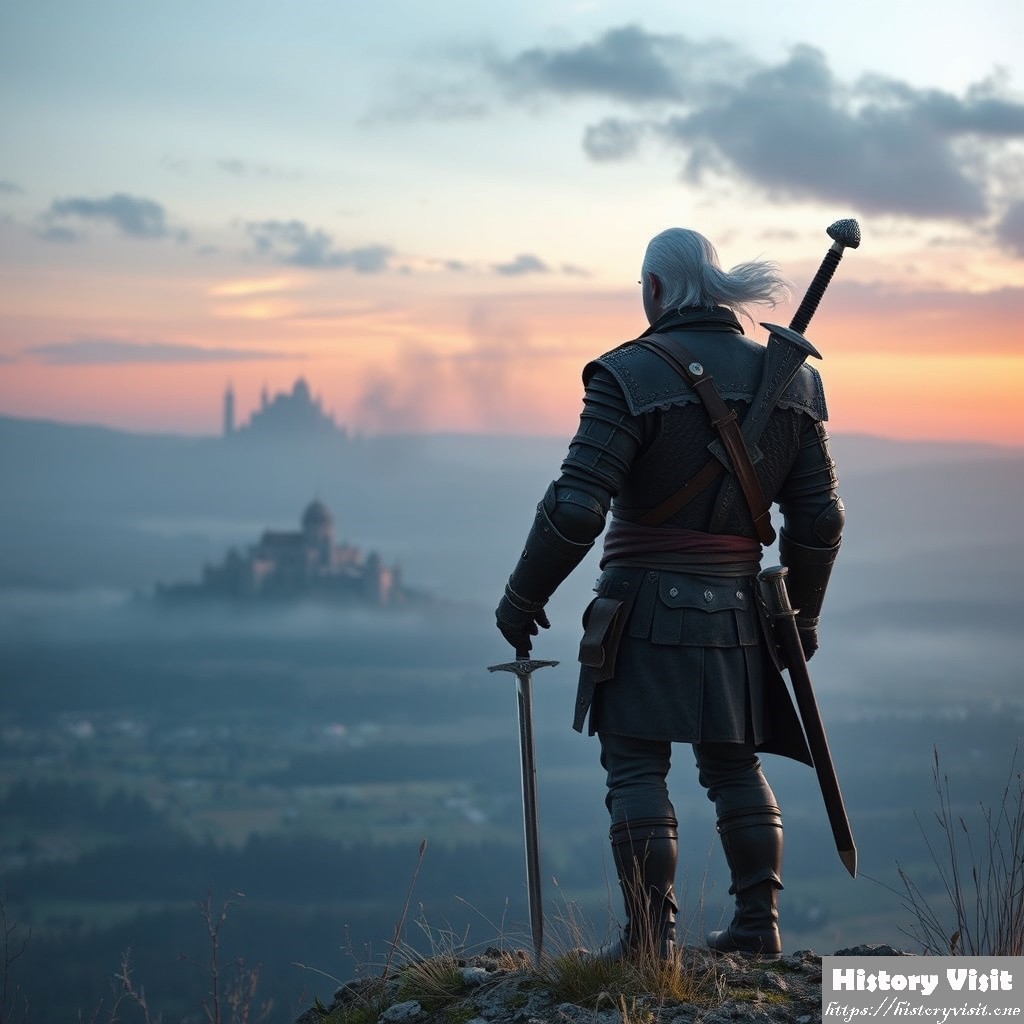
Geralt of Rivia is not just a Witcher; he is the embodiment of survival, neutrality, and a delicate balance between life’s gray areas. His story is a narrative of eternal conflict: with the monsters outside, the men, and with every moral quandary that arises on his journey. As much as Geralt of Rivia was detached and stoic, his deep connections with Ciri and Yennefer proved even the coldest of souls could love and show loyalty.
With each passing day, Geralt of Rivia rides, his renown as “The White Wolf” spreads. Less of a man by now, rather he is a myth-a figure whose name will be remembered for generations. While his path is fraught with danger and uncertainty, Geralt of Rivia remains true to his resolve to survive in a world most often determined to break him.
In the end, it is not the monsters he kills but the choices that Geralt of Rivia makes that define him. It is in those choices that his true character emerges to make him one of the more interesting figures in the world of The Witcher.


